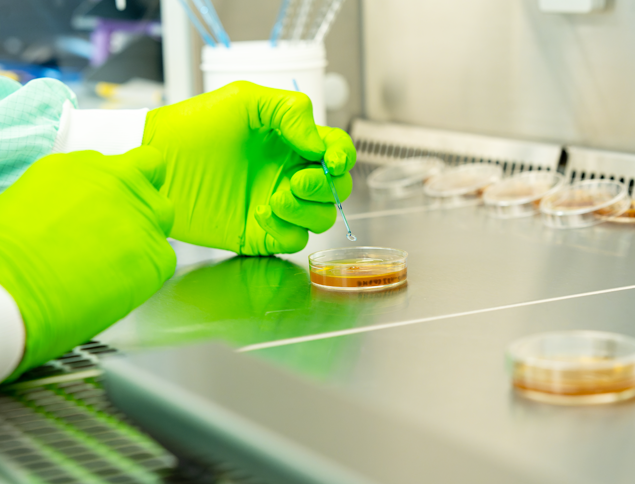Impurity Testing Services
- Residual Host Cell Protein (HCP) testing
- Quantification by ELISA method to monitor purification efficiency
- Residual Host Cell DNA testing
- Residual DNA quantification by qPCR validated according to ICH Q2 guidelines
- Coverage: Human, CHO, Vero, Mouse, Canine, Duck, Insect, Avian, Bacterial…
- Compliance: EP§2.6.35, USP <509>, FDA (<10 ng/dose)
- DNA Fragment sizing by Digital PCR
- Specification: <200 base pairs, as required by FDA.
Relevant for Human, CHO and vero-based products
- Specification: <200 base pairs, as required by FDA.
- Residual DNA quantification by qPCR validated according to ICH Q2 guidelines
Together, these assays provide a robust approach to monitoring and controlling residual DNA risks in biologics.
- Residual Plasmid DNA and Gene Sequence Testing
- Targeted qPCR (kanamycin, VSV-G, HIV-GAG, AE1, SV40, HIV-PSI) for plasmid or vector-derived sequences
- Endotoxin Testing
- Chromogenic Limulus Amebocyte Lysate (LAL) assay, ensuring the absence of specific pyrogenic contaminants that could compromise product safety at release
- Residual reagents quantification
- Measurement of residual BSA, benzonase and other process reagents to verify downstream clearance and compliance
